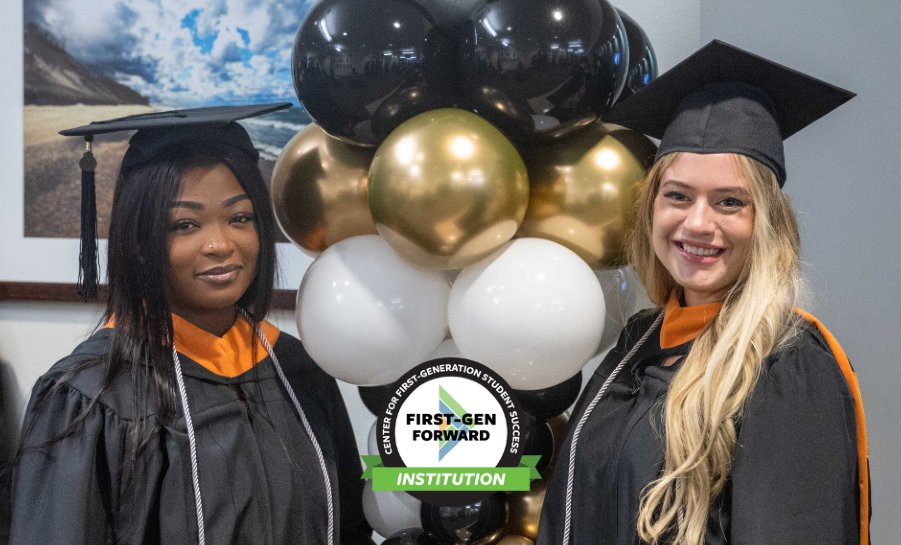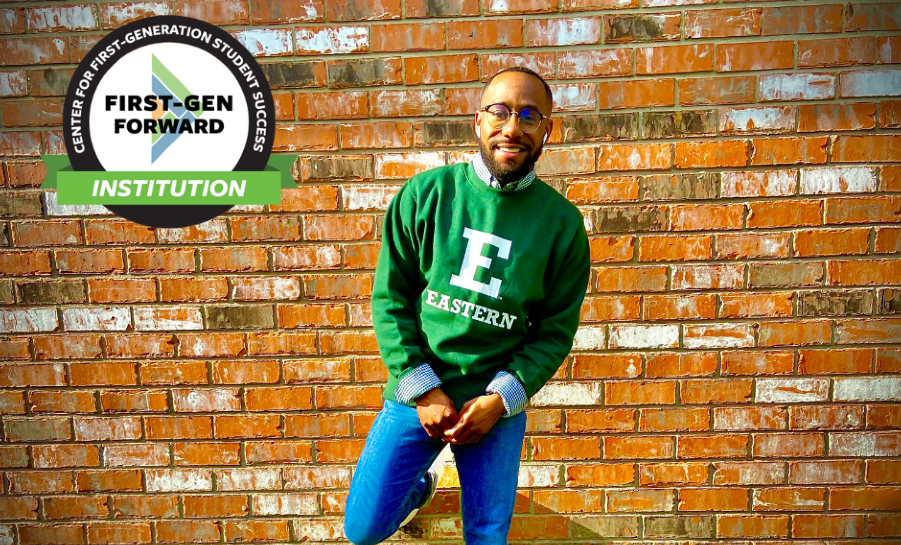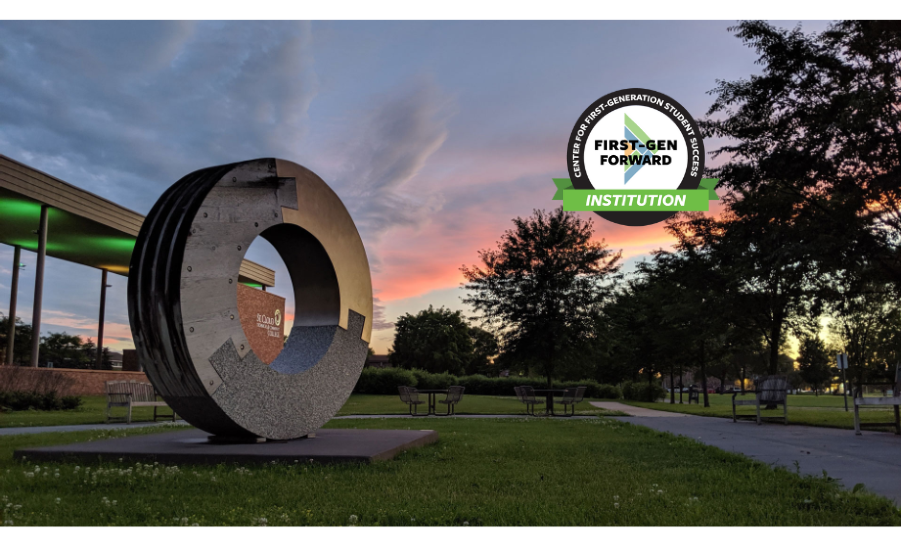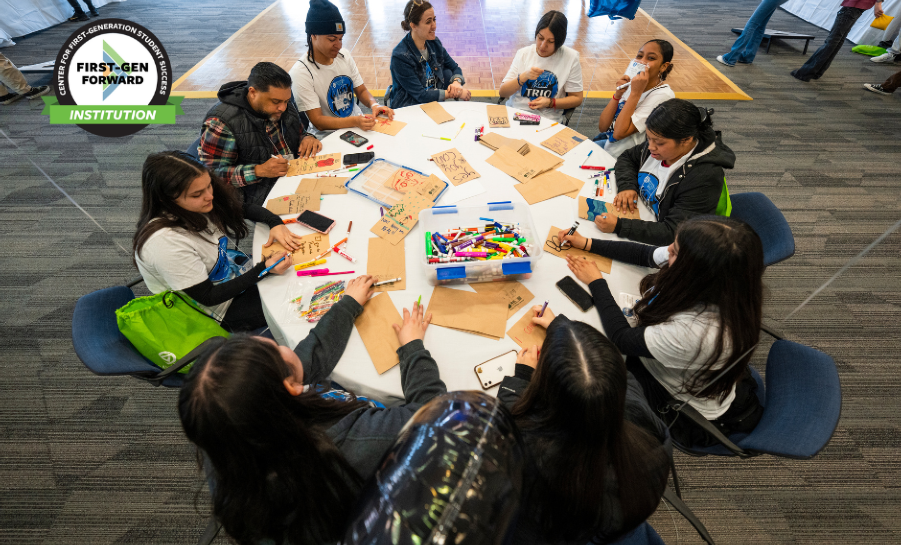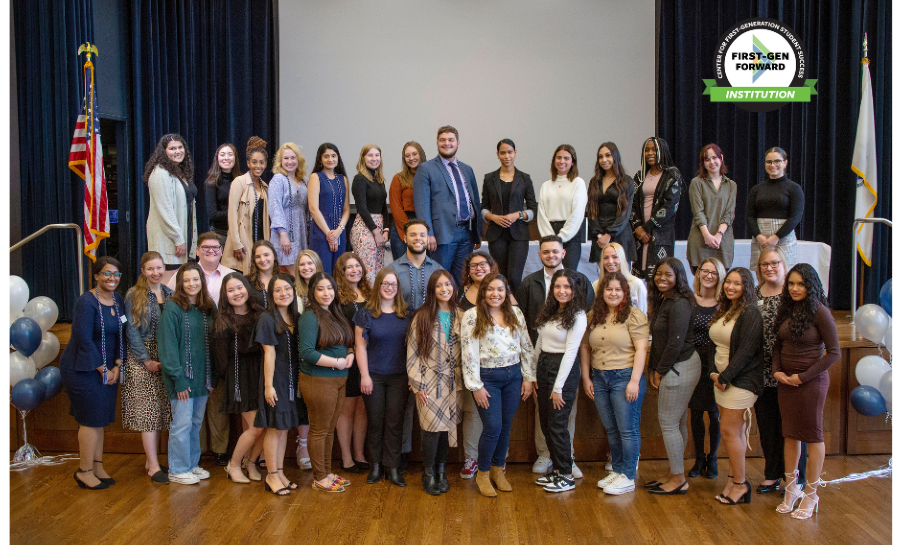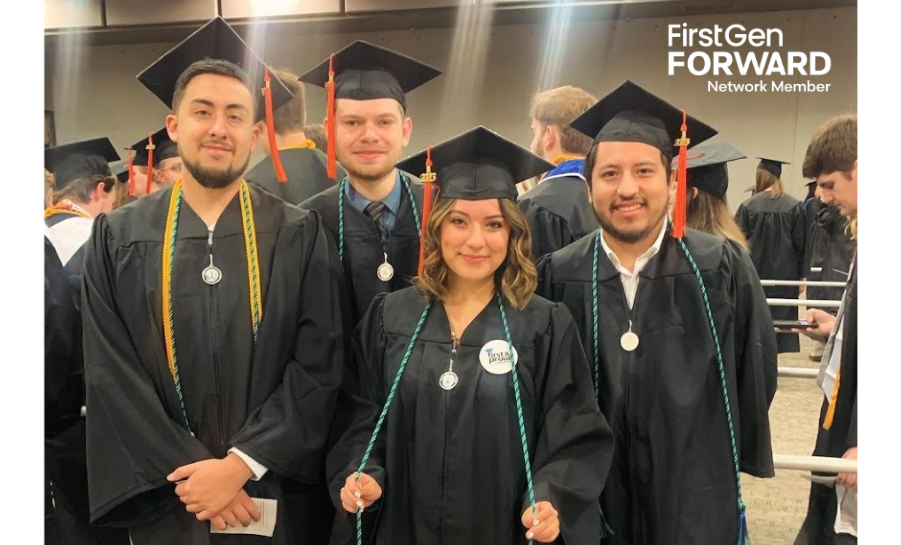5 Strategies to Embrace First-generation Success Among American Indian Students
Dalton Hoffer, Shania McMillian, Dr. Concetta Bullard, University of North Carolina at Pembroke / FirstGen Forward / November 09, 2022
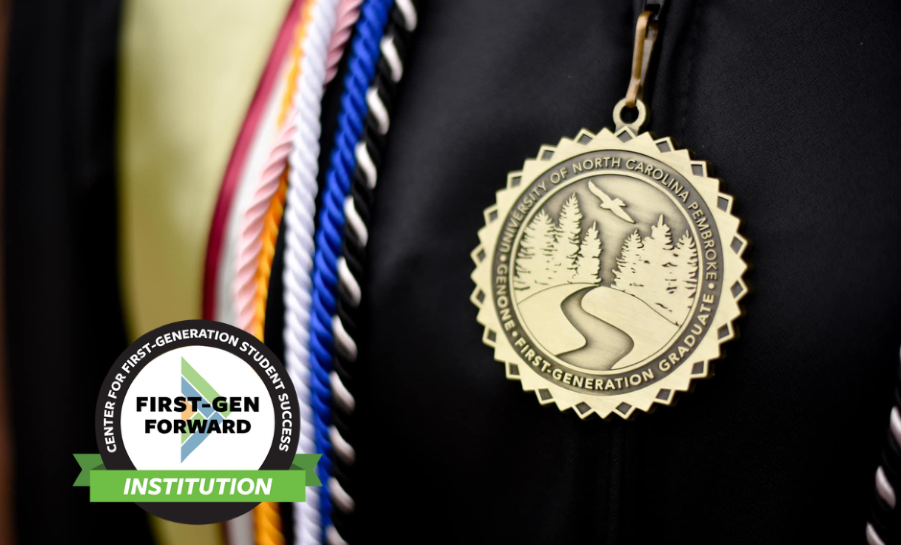
The University of North Carolina at Pembroke was founded by American Indians to educate future American Indian educators in 1887 and is recognized as North Carolina’s historically American Indian university. We have since become widely known for our diverse student population and our work with American Indian students who make up roughly 12% of our student population, most of whom are commuter students.
Navigating college without guidance and support for first-generation students is challenging, especially for those who also identify as American Indian and are exploring new cultures and experiences outside of the comfort of their tribal communities. To ensure the success of American Indian students, we must be intentional in our approach to enhance their sense of belonging.
Here are 5 strategies we believe will help embrace your American Indian first-generation students:
-
Understand the whole student: American Indian students need holistic support.
- Family and community support: The driving force for this population to want to succeed and show resilience.
- Religious ties: There may be high expectations for this population to attend and actively participate within their religious community.
- Work commitments: These students often work to support their education and families.
- Land & cultural values: Honoring their ancestors and elders through acknowledgement, engagement, and respect.
- Tribal citizenship: Tribal affiliation, cultural identity, and involvement is an important part of who they are and should be celebrated.
-
Embrace their culture: Centering American Indian cultures to first-generation programs and initiatives throughout the college experience will cultivate a sense of community.
- Land Acknowledgements: Recognize and respect the land in which you inhabit and who was there before you. Learn more at: https://www.uncp.edu/academics/american-indian-heritage-center/uncp-land-acknowledgment
- Welcome Week: Students’ first night on campus, they are introduced to Native crafts, food, music, and culture through an event called FLIGHT.
- First-generation graduation medallions: At the inaugural Brave to be First Achievement Ceremony, we recognized graduating first-generation students with a medallion to wear at graduation that had many symbols of Native culture, including references to pinecone patchwork which is a symbol of resilience within the Lumbee Tribe.
-
Success coaching & advising: One-on-one appreciative-based approaches and interactions are best practices when coaching and advising American Indian students. They thrive on relatable connections and are more successful when they feel like they have a sense of family on their college campus. Here are things we provide to build a sense of community for our American Indian students.
- First-generation Peer Mentor Program
- First-generation support services: GenONE, GEAR UP NC, TRIO Student Support Services, Academic Resources, Academic Advising, SOAR (Students Obtain Academic Resilience) Program, HAWK (Honing Academics With Knowledge) Alert Program and Kudos
-
Campus intentionality & representation: Embrace and celebrate American Indian representation throughout your programming and campus to enhance your institution’s commitment to inclusive excellence.
- Representation: Include speakers, presenters or panelists and recruit peer mentors, academic success coaches, academic advisors, faculty and staff of the same identity.
- Campus Traditions: Acknowledge the cultural ties to campus through major events like Convocation, Commencement, campus Powwows, and celebrating Indigenous Peoples’ Day.
- Intentional Collaborations: Connect and establish a relationship with American Indian based student organizations and departments that already exist within your campus community. We have partnered with our American Indian Heritage Center during National First-Generation Celebration week.
-
Foster a sense of community: Design initiatives that are community based within the first-generation experience.
- Clustered courses: Pre-load first-generation students in a series of courses during their first semester. Students take 2 or 3 courses together as a cohort which builds a stronger sense of community. We have dedicated 3 freshman seminar courses that are connected to either a composition I course or an Introduction to Sociology course, all taught by first-generation faculty & staff.
- Service-learning: Native cultures value and respect community based learning and we have seen our American Indian students thrive in courses that have an embedded service component connecting learning to civic responsibility. They value giving back to their community and look for ways to do so.
- Native based success programs: American Indian Learning Community & Native Strong
UNC Pembroke has valued and embraced our American Indian background since the institution was founded. Implementing these various strategies take work but shows how dedicated the university is to first-generation American Indian students’ success, which goes a long way.
Here are what our students have said about their experiences:
“UNCP has supported me as a first-generation Native American through so many programs! The staff and my peer mentor have shown that they care about my heritage and have really helped me with my transition into college.”
“There was an event called Native Foodways where elders brought food that we ate in our community. It was like what I experienced with my family at home.”
“My identity has grown a lot since I came to UNCP. I went to the powwow with my friends and it just made me feel more connected to the university.”
“UNCP has supported me as an American Indian and as first-generation, we have our own clubs and opportunities that acknowledge and celebrate us and our heritage.”
